The Ilorin Durbar festival is a prominent cultural celebration held annually in Ilorin, the capital city of Kwara State in Nigeria. The festival is a cultural display that stands as a vibrant testament to the rich heritage and unity of the Ilorin Emirate in Kwara State, Nigeria. Rooted in centuries-old traditions, the festival celebrates the unique cultural mosaic of Ilorin, blending influences from Kanuri, Gobir, Nupe, Fulani, and Yoruba traditions into a harmonious tapestry.
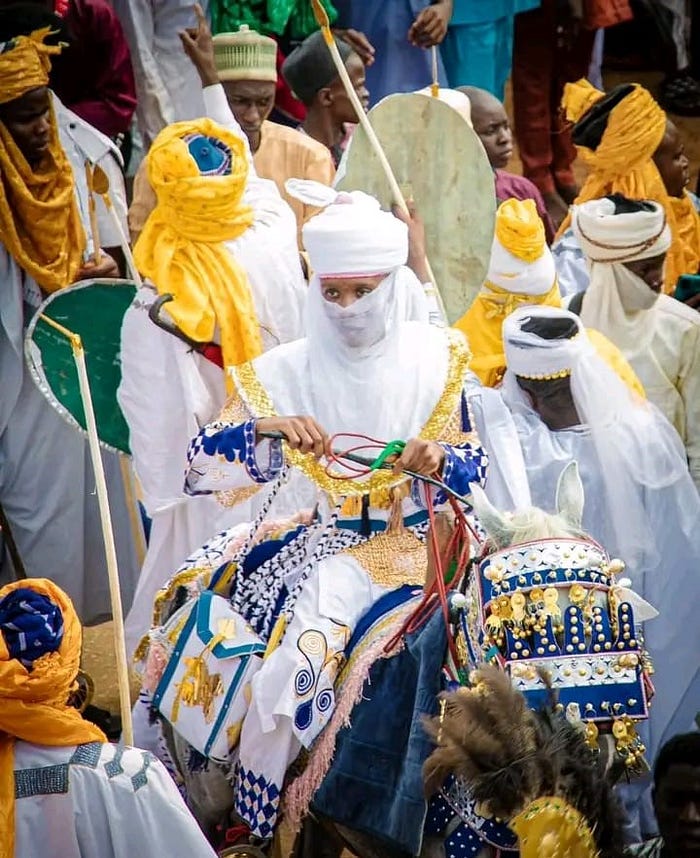
Historical Background
The Durbar festival in Ilorin dates back to the era of the Fulani Jihad led by Shehu Usman dan Fodio in the early 19th century. Ilorin, strategically located along major trade routes in northern Nigeria, became a significant center of the Fulani Emirate after Ilorin was conquered by the Fulani in 1824. This event marked a significant turning point in the history of Ilorin, as it led to the establishment of the Fulani emirate hence ending the rule of Afonja in Ilorin. The Durbar tradition was introduced as a way to display the martial skills, grandeur, and pageantry of the emirate, while also serving as a means of fostering unity among the people.
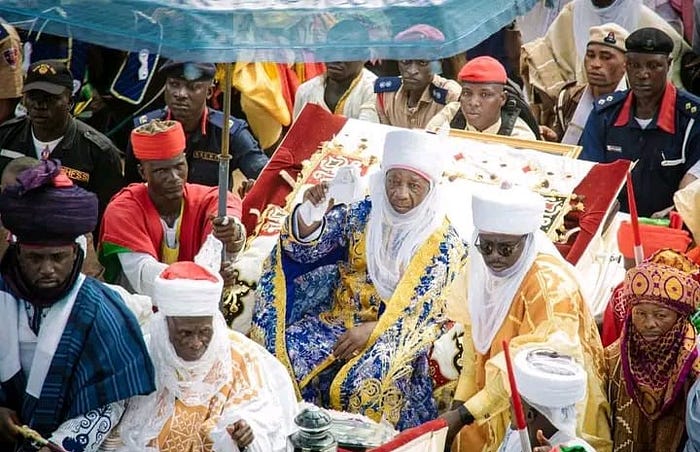
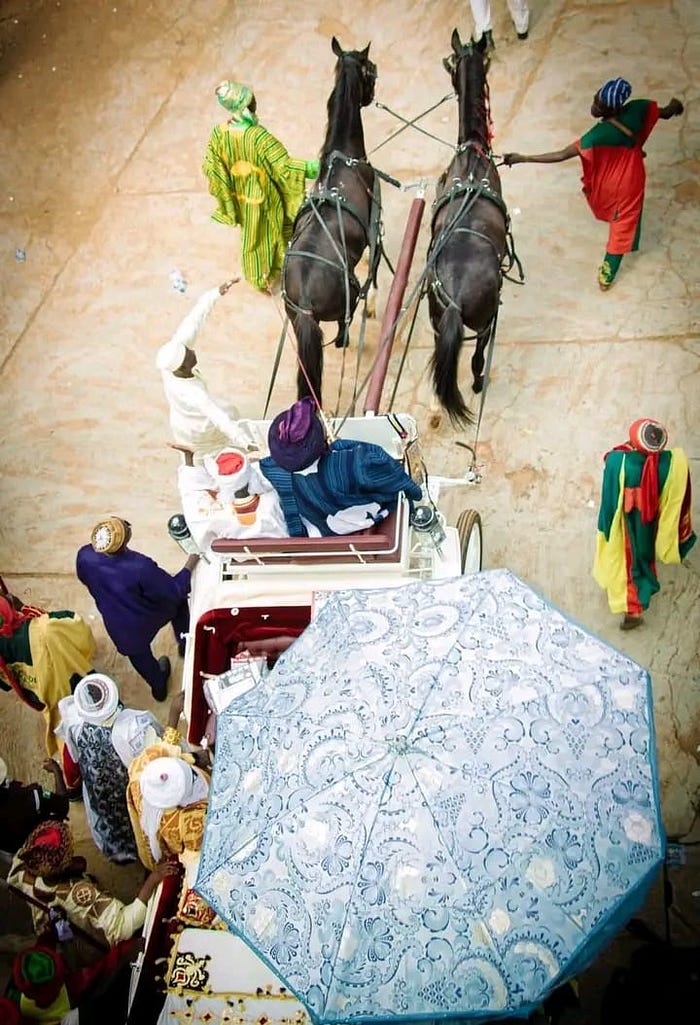
Cultural Significance
- Celebration of Martial Traditions: The Ilorin Durbar festival is known for its impressive display of horsemanship and military prowess. The festival features ceremonial parades where heavily adorned horsemen, clad in colorful traditional attire and wielding ceremonial weapons, showcase their riding skills. This aspect of the festival reflects the historical role of cavalry in Fulani culture and underscores the martial traditions of the emirate. The horses are adorned with different cultural significant attires almost similar to how the horse are adorned in the Kano Durbar. There are also Fulani dressing styles and turbans on display.
- Cultural Pageantry: The festival is a spectacle of cultural pageantry, with participants dressed in traditional regalia representing different noble lineages and social groups within the emirate. Each group, known as “Ganawas,” competes to display the most elaborate and intricate costumes, often adorned with embroidery, beads, and intricate designs that symbolize status and heritage.
- Symbol of Unity: The Durbar festival in Ilorin serves as a unifying event for the people of the emirate. It brings together residents, dignitaries, and visitors from various parts of Nigeria and beyond, fostering a sense of community pride and solidarity. The festival reinforces cultural identity and promotes mutual respect among different ethnic and religious groups within the region.
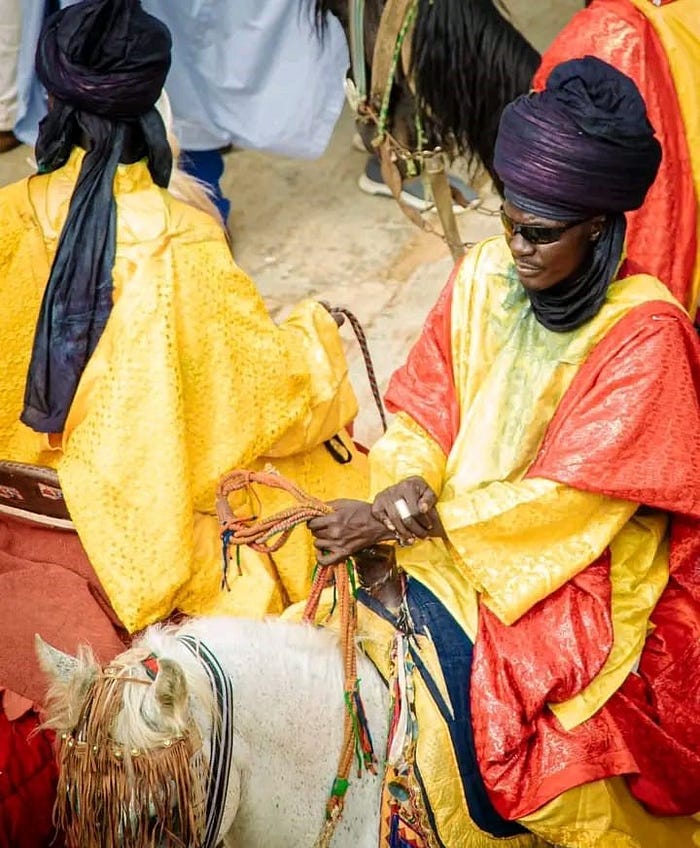
Planning and Coordination of the Durbar
According to Engineer Suleiman Alapasanpa, the Chairman of the Ilorin Emirate Durbar Committee, the 2024 Durbar festival aims not only to showcase Ilorin’s distinctiveness but also to reconnect the younger generation with their cultural roots amidst the challenges of modernization. The 2024 Ilorin Durbar festival spans seven days of diverse activities, starting with a Health Day aimed at promoting community well-being through medical outreach and awareness.
The festivities festure a special Jumaat service at the grand Ilorin Central Juma’at Mosque, led by Chief Imam Shaykh Muhammad Bashir Salihu, setting a spiritual tone for the celebrations. Concurrently, roadshows featuring expert horse riders traverse the city, displaying the grandeur and skill of over 500 mounted participants in preparation for the main event.
On the eve of Eid El-Kabir, the Ilorin Emirate Exhibition at the Emir’s palace highlights the emirate’s historical artifacts and cultural artifacts, offering insights into its rich past. On Sallah, the Emir led prayers at the Ilorin Eid praying ground, reinforcing the festival’s religious significance and communal unity. Following the prayers, the Emir hosts Governor AbdulRahman AbdulRazaq for a traditional Sallah homage, symbolizing the bond between royalty and governance.
The Grand Durbar is held on the third day after Sallah. This spectacular event unfolds at the forecourt of the ancient palace, where the Emir, flanked by the Governor, High Chiefs, royal family members, and honorary title holders, leads a majestic procession of adorned horses. This procession not only dazzles spectators but also reaffirms the emirate’s cultural legacy and historical pride.
To accommodate the large attendance, modern amenities like large TV screens are strategically placed across Ilorin, enhancing accessibility and ensuring a memorable experience for all. The Durbar festival boosts the local economy through increased trade, hospitality, and tourism, firmly placing Ilorin on Nigeria’s tourism map.
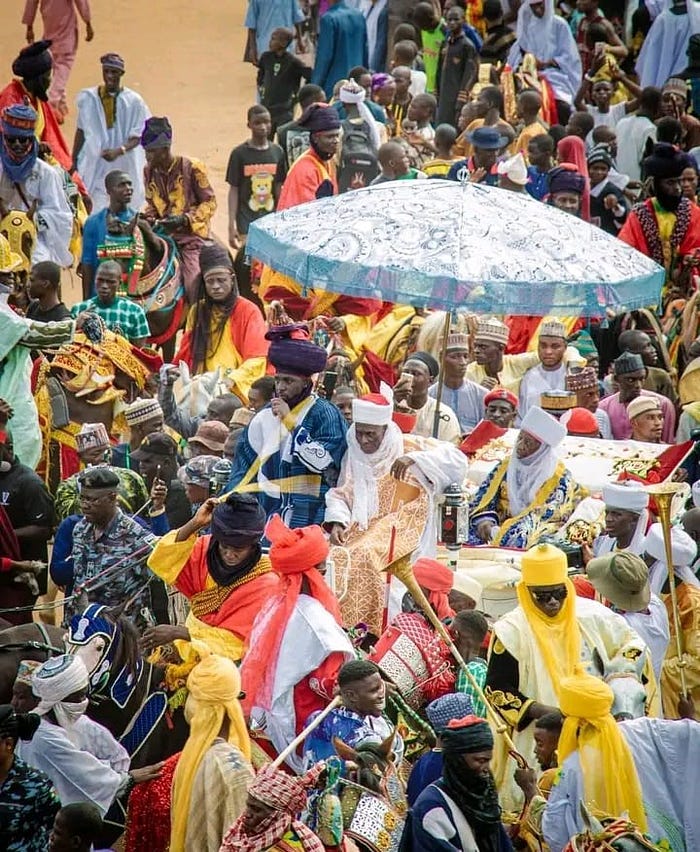
Festival Activities
- Durbar Procession: The highlight of the festival is the Durbar procession, where participants parade through the streets of Ilorin to the Emir’s palace. Led by the Emir and other traditional leaders, the procession includes horsemen, drummers, and musicians who create a lively atmosphere with traditional music and dance performances.
- Traditional Salutations: At the palace, the Emir receives homage and salutations from his subjects, community leaders, and visitors. This symbolic act reaffirms the Emir’s role as a custodian of tradition and a symbol of authority within the emirate.
- Cultural Performances: Throughout the festival, there are cultural performances featuring traditional music, dance, and poetry. Griots (traditional oral historians) recount the history and heroic exploits of the emirate’s founders and leaders, enriching the festival with storytelling and artistic expression.
- Community Engagement: The Ilorin Durbar festival is also an opportunity for community engagement and social interaction. It includes activities such as feasting, traditional games, and marketplace exhibitions where artisans and craftsmen showcase their skills in weaving, pottery, and metalwork.
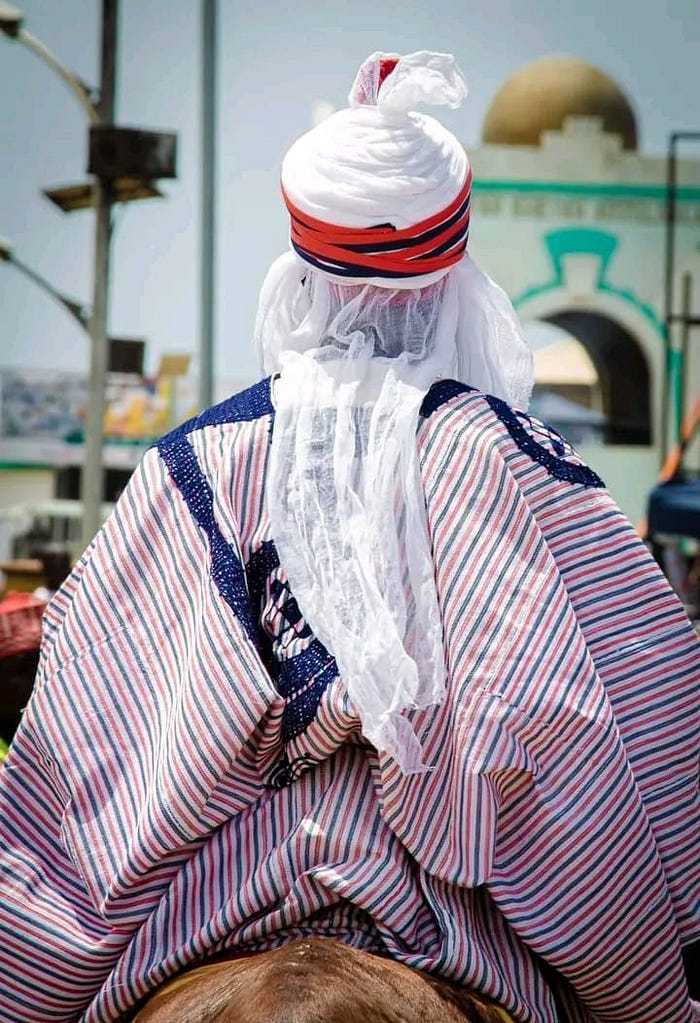
Contemporary Relevance
In modern times, the Ilorin Durbar festival continues to play a crucial role in promoting tourism, cultural heritage, and economic development in Kwara State. It attracts tourists, scholars, and enthusiasts interested in experiencing and learning about Fulani culture and traditions firsthand. The festival’s significance extends beyond its cultural and historical roots, serving as a platform for promoting peace, unity, and cultural diversity in Nigeria.
Overall, the Ilorin Durbar festival stands as a testament to the resilience and continuity of Fulani cultural practices, while also celebrating the enduring legacy of the Emirate of Ilorin in Nigeria’s cultural landscape.

